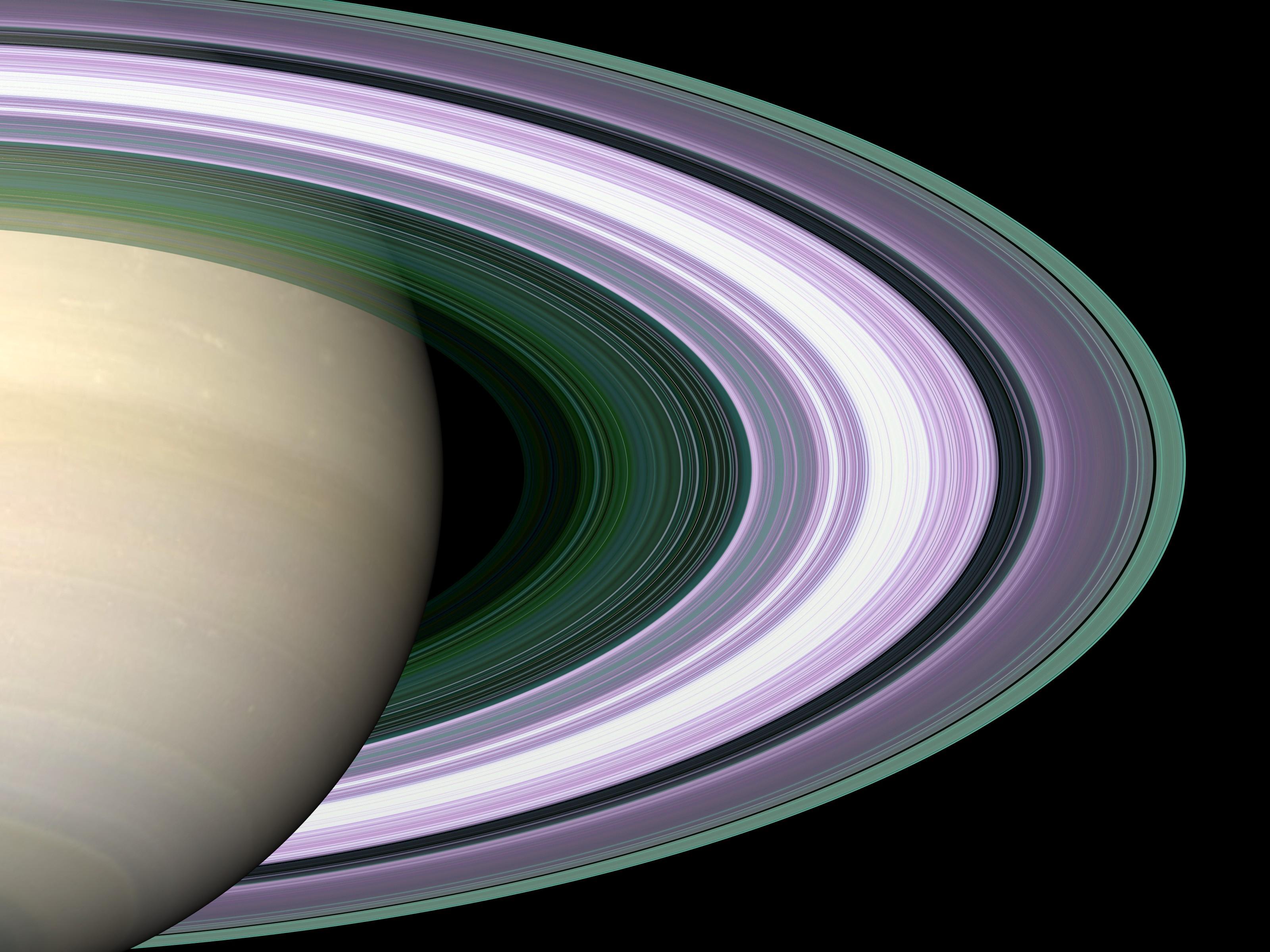Ring Debris
Some folks worry about billions or trillions of thinsats turning into a vast cloud of space debris. This is not a problem with proper choice of orbits, and active, complete life cycle management of thinsats.
|
traditional |
server sky |
altitude |
300 km |
6400 km |
inclination |
0-110° |
0-0.25° |
fuel supply |
2 - 10 years |
infinite |
orbit assignment |
ad hoc |
coordinated |
orbit management |
per satellite |
entire system |
tracking accuracy |
1 km |
0.1mm |
orbit velocity |
8 km/s |
5 km/s |
closing velocity |
16 km/s |
<< 1 m/s |
threat avoidance |
none |
continuous |
vulnerability |
single point |
redundant |
end-of-life |
derelict |
recycle as ballast |
Rings of Saturn viewed from NASA Cassini probe. Click for larger image. False-color green bands are ring particles larger than 5cm, perhaps 10 grams or more, which have survived intact for millions or billions of years |
An example of a system that is not subject to continuous bombardment are the rings of Saturn. Parts of the rings subject to frequent collisions, with particle sizes less than 1cm, but other regions of the rings have particle sizes larger than 5 centimeters. These particles are snowballs, very fragile - they would fragment into tiny flakes and not survive as snowballs if they were continuously colliding at high speed for hundreds of millions of years. Ring snowballs are placed randomly, cannot not maneuver, cannot detect threats, and are unmanaged, yet they survive for vast timescales. Server sky orbits are designed with "rules of the road" that almost eliminate collisions. By proper exploitation of orbital mechanics, with additional layers of tracking, control, and survivability, thinsat arrays are robust in ways that the ring snowballs (and traditional satellites) lack.
We can worry about space debris hazards, or we can work to reduce them to negligibility. Which approach is more effective?
